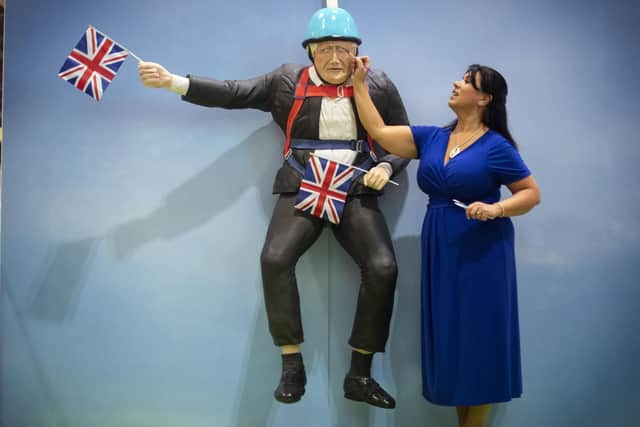Boris Johnson steals Labour’s clothes even as he takes Tories to the right – Ian Swanson


The maverick Mr Stewart was briefly the big hope of moderate Tories in the contest to succeed Theresa May before being eliminated in the closing rounds. He was then one of the 21 Tory rebels, along with Ken Clarke, Philip Hammond and Sir Nicholas Soames, expelled from the parliamentary party for voting against the Prime Minister on a no-deal Brexit.
Now he clearly sees no future for himself in the party as led by Mr Johnson – and he plans to stand as an independent for Mr Johnson’s old job as Mayor of London.
Advertisement
Hide AdAdvertisement
Hide AdFormer Home Secretary Amber Rudd quit both the Cabinet and the parliamentary Conservative party last month over the purge of the 21 rebels.


And of course Ruth Davidson resigned as Scottish Tory leader amid well-known policy differences with the Prime Minister as well as the new demands of motherhood.
Mr Johnson has reportedly dismissed the idea that he has taken the party to the right. Indeed he has insisted he is “the most liberal Conservative Prime Minister for decades”.
If that is a statement of intent then it might be widely welcomed, though as always it is difficult to know how much store to set by Mr Johnson’s words.
Advertisement
Hide AdAdvertisement
Hide AdBut there is little evidence of Mr Johnson’s supposed liberal streak in his behaviour since walking into Number Ten at the end of July.
Reversal of austerity?
There are still fears that the no-deal Brexit he is willing to risk – and is arguably becoming the most likely outcome – will see Britain become a low-tax, low-regulation economy seeking to undercut our current European partners. That would almost inevitably mean lower wages and fewer rights for workers.
And it is difficult to see how Mr Johnson can claim his Government is not right wing when he has Home Secretary Priti Patel, Foreign Secretary Dominic Raab and International Trade Secretary Liz Truss in such important roles.
Mr Johnson has made promises about increased spending on schools and hospitals and an increase in the minimum wage, which sound like a reversal of the austerity policies of the Cameron and May eras.
Advertisement
Hide AdAdvertisement
Hide AdBut these have to be seen in the context of a looming election which Mr Johnson is desperate to win to avoid becoming the UK’s shortest-serving Prime Minister.
Having seen how Labour’s 2017 manifesto captured the imagination of many voters with its policies on nationalisation of rail, water and energy supply, higher taxes for top earners and big business, and scrapping tuition fees in an election which was originally expected to be all about Brexit, Mr Johnson wants to make sure he has a broader platform on which to appeal to voters than simply delivering Brexit, although that remains the key issue.
Labour’s internal divisions and confusion over its Brexit stance are hampering its election chances.
If Mr Johnson is able to achieve something he can call a deal from Brussels and then secure a majority in parliament to support it, he will hold an election, telling voters he has delivered on his promises. A no-deal Brexit would be more complicated but could still see him with a good chance of re-election. Then the UK would face five more years of Johnson rule.
